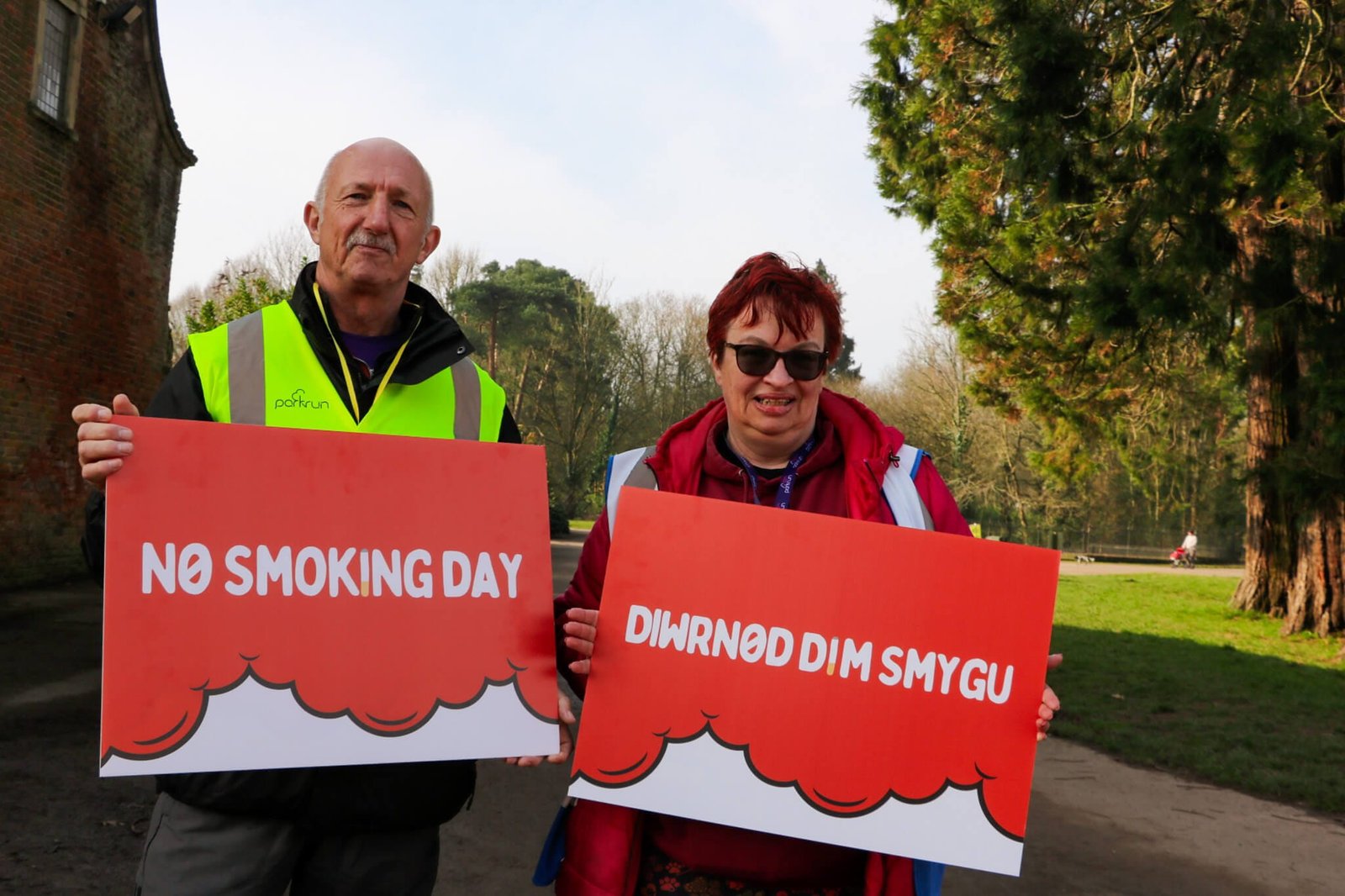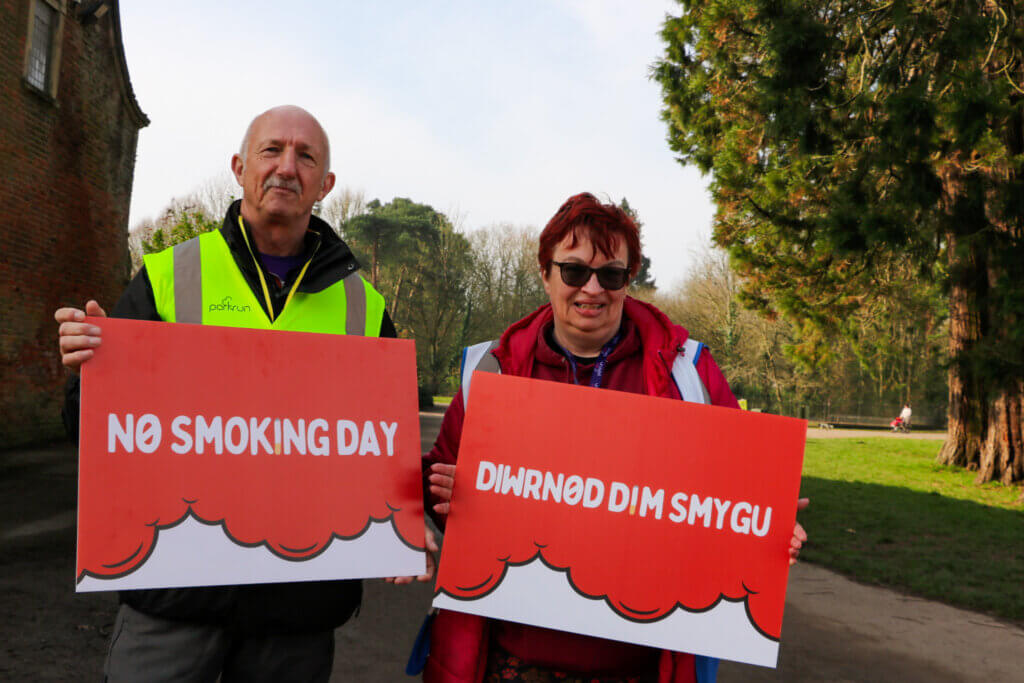 Following on from his first blog on smoking and Coronavirus, John Dicey, a former 80 a day smoker who is now Global CEO & Senior Therapist, of Allen Carr’s Easyway
Following on from his first blog on smoking and Coronavirus, John Dicey, a former 80 a day smoker who is now Global CEO & Senior Therapist, of Allen Carr’s Easyway  organisation answers your questions on the best ways to quit smoking whilst in lockdown.
organisation answers your questions on the best ways to quit smoking whilst in lockdown.
What is your main message to smokers in light of the Covid-19 pandemic?
I think we’ve all probably heard the advice from the world’s leading medical officers about smokers being more vulnerable if they get COVID-19 . The message has been pretty clear; now would be a great time to quit smoking.
The #QuitForCovid campaign is gaining momentum on a daily basis, and lots of people seem determined to emerge from lockdown having gained something positive.
My message to smokers would be that there’s never been a better time to stop. Not because of lockdown, financial issues, or health worries but simply because it would be wonderful to emerge from this crisis free from the slavery of smoking. That’s a bonus that will stay with you forever and not just for Covid-19.
What advice would you give to smokers who are worried about how they will cope with cigarette cravings if they quit smoking?
 I was a bad case, a chain-smoker, and I’d panic if I got down to my last 20 cigarettes – let alone my last few. But on the few occasions I found myself with only a couple of cigarettes left I’d experience what I thought was the physical withdrawal from nicotine. It was an extremely uptight, panicky, anxious, stressed feeling – the feeling that would-be quitters dread.
I was a bad case, a chain-smoker, and I’d panic if I got down to my last 20 cigarettes – let alone my last few. But on the few occasions I found myself with only a couple of cigarettes left I’d experience what I thought was the physical withdrawal from nicotine. It was an extremely uptight, panicky, anxious, stressed feeling – the feeling that would-be quitters dread.
What’s less obvious and was certainly not obvious to me at the time, is that the feeling didn’t go away when I lit my second-to-last cigarette. In fact, the feeling would get worse! Now think about that for a moment. Whatever was causing those feelings – it can’t possibly have been nicotine withdrawal. Nicotine was flooding into my body; I was smoking a cigarette at that time.
Nicotine withdrawal does exist – but it’s actually an extremely mild, slightly empty, slightly insecure feeling and is almost imperceptible. The real discomfort a smoker experiences when they quit without proper advice and guidance is caused by a mental process. The sense that they are missing out on some sort of pleasure or benefit. It’s that belief that causes those unpleasant physical symptoms. They’re real physical symptoms – but they’re caused by a thought process. Change the thought process and you don’t get the unpleasant physical symptoms.
If you quit smoking with a great frame of mind, a sense that you’re escaping from something rather than “giving up” something, the physical withdrawal from nicotine really isn’t a problem.
How can they prepare themselves to quit smoking?
The important thing is to make a choice. Rather than feel obliged to quit because of health concerns, or money concerns, or pressure from friends or family – ignore all that stuff. It’s all very negative. Instead start viewing smoking for what it is – simply addiction to nicotine.
If you can understand that nicotine addiction, and the mental processes it causes, fools you into thinking that cigarettes relieve discomfort rather than cause discomfort you’re halfway to freedom already.
 Cigarettes don’t cure the discomfort – they cause it. Allen Carr explained it perfectly, he described it as like wearing horribly tight shoes all day – just for the relief of taking them off when you get home. Now we all probably make the odd sacrifice of comfort in the interests of fashion – but we simply wouldn’t wear horribly tight shoes just for the sense of relief when we take them off.
Cigarettes don’t cure the discomfort – they cause it. Allen Carr explained it perfectly, he described it as like wearing horribly tight shoes all day – just for the relief of taking them off when you get home. Now we all probably make the odd sacrifice of comfort in the interests of fashion – but we simply wouldn’t wear horribly tight shoes just for the sense of relief when we take them off.
How can people quit smoking whilst under lockdown without behavioural support of nicotine replacement therapy to hand?
Part of the challenge of getting through lockdown is having to do without those things which we take for granted. Although some stop smoking services across the country are valiantly attempting to continue providing their support – it’s clear that as the crisis deepens it will be less available, if at all. My message is clear, there is nothing to fear from quitting smoking and Allen Carr’s Easyway are happy to provide free of charge advice to anyone, whether they elect to use Easyway – or decide to simply quit smoking on their own.
The options are easily accessible, they don’t require you to leave the house or use any kind of nicotine or other kind of drug and if you follow the guidance they deliver – you should not only find it easy to stop smoking – but thoroughly enjoyable. There is nothing to fear and everything to gain.
What advice would you give to the friends and family of anyone wanting to quit smoking whilst under lockdown?
In our eagerness to help our loved ones to quit we want to be encouraging, supportive, and “there” for them, but this often comes across as pressure. Whether it’s repeatedly checking in with them, “How are you feeling about it?”, then asking the exact same question half an hour later, or whether it’s tip-toeing around them in case you risk messing with their mojo, “less” is definitely “best”.
Be loving, warm, and considerate – but try to be as normal as possible. If the person who’s quit says something about having quit, like, “I’m doing great”, then hearty congratulations and encouragement are the perfect response. An extra cuddle or hug (if you’re self-isolating with them) or a big thumbs up message if you’re not.
If you see that they’re struggling – or if perhaps they fail – please don’t judge them. It is easy to stop smoking – but only if you know how. Never be angry with them for failing – if you understood addiction then you’d understand why.
If people have tried quitting smoking are under stress and are urgently craving a cigarette as a result of the Covid-19 pandemic, what would you advise them to do?
I think the nation is still a little in shock. Never, in peacetime, have so many of the population been so stressed simultaneously. It’s inescapable. So, the first thing to remember is that the stress is real. The second thing to remember is that far from relieving that stress, smoking would add to it further. The third thing to remember is that the stress can only hurt you if you let it.
For those of us lucky enough not to be on the front line of this crisis we should undertake to control our stress levels for the benefit of those who are. There are an extraordinary number of people for whom we must gratefully remain “de-stressed”; doctors, nurses, volunteers, and anyone who is out there working hard, in the most difficult conditions imaginable, to help us get through this crisis. We can help them all – just by taking good care of ourselves. Physically and mentally.
There are so many brilliant resources online, via apps, or books, or audiobooks and podcasts that can help everyone deal with the stress that this crisis is causing.
For those heroes at the front line I would say a similar thing, but ever so gently, ever so respectfully, I’d say – do what you can, at this terrible time, in these terrible conditions, to somehow find relief from the incredible stress you must be dealing with. Talking to friends, talking to family, or simply being comfortable being alone if you’re one of the brave, selfless souls living separately from their loved ones so that they can support the elderly, the infirm, and the victims of this virus – do what you can to feel as comfortable as you can.
What about when I drink – my willpower slips, and I end up smoking?
 When people feel pressurised to quit – or feel that they’ve “given up” something precious rather than “got rid of” something awful it requires willpower. The approach is, “I really want to carry on smoking, but I can’t. I’ve got to stop. I’ll tough it out for as long as I can”. It’s like hanging on for grim life. In those circumstances, a couple of drinks, loosens that grip and before long – we kid ourselves that, “just the one”, won’t hurt us. But genuinely, if you make a decision, that you’ve had enough of smoking, that you’re fed up of what it’s done to you, and you enjoy a fabulous sense of release when you quit – you can have as many drinks as you want and your view won’t change.
When people feel pressurised to quit – or feel that they’ve “given up” something precious rather than “got rid of” something awful it requires willpower. The approach is, “I really want to carry on smoking, but I can’t. I’ve got to stop. I’ll tough it out for as long as I can”. It’s like hanging on for grim life. In those circumstances, a couple of drinks, loosens that grip and before long – we kid ourselves that, “just the one”, won’t hurt us. But genuinely, if you make a decision, that you’ve had enough of smoking, that you’re fed up of what it’s done to you, and you enjoy a fabulous sense of release when you quit – you can have as many drinks as you want and your view won’t change.
My partner smokes – will that make it harder?
Similarly, to my last point, those who feel they are sacrificing something when they quit tend to envy other people who continue to smoke. This is bad enough if you see people smoking in a movie – let alone when it’s your partner who refuses to quit – or simply can’t succeed. But as I’ve said, with the right frame of mind, one of finally having found freedom – your partner smoking won’t bother you – and you certainly won’t be tempted to join them.
It’s essential that you don’t hassle them or make them feel bad. Deep down inside they feel bad enough already. One of the greatest things about quitting with a positive frame of mind is that you can be supremely cool about friends or partners who continue to smoke. They’ll notice how calm and laid back and relaxed you are about having quit and it’ll inspire them, eventually, to follow your lead.
 I’m worried about weight gain – is there a way to avoid it?
I’m worried about weight gain – is there a way to avoid it?
Weight gain is not inevitable and only normally occurs with those smokers who grit their teeth and try to battle the temptation to smoke rather than being happy to leave smoking behind them. If you don’t feel you’re missing out on anything – there is no compulsion to eat your way through bags of sweets or junk food. It’s often this aspect of quitting smoking, using stubborn resolve, that causes most of the weight gain – people tend to eat and drink more as a substitute for smoking.
Go for It!
If you want to quit smoking on your own – it’ll be my pleasure to provide you with some further advice and guidance, or answer your questions, over the coming weeks. If you’d like to use Allen Carr’s Easyway I’m delighted to highlight some options for you below (many of which are FREE).
ONLINE FREE: Audible allow new members a free book when they open an account. You’re under no obligation to make any subsequent purchases and they’ll allow you to have a free copy of ‘Allen Carr’s Quit Smoking Boot Camp’ audiobook. It’s delivered direct to your phone. I’d recommend this particular Allen Carr book as it tackles more contemporary issues than the original, ‘Allen Carr’s Easyway to Stop Smoking’, which is also available for free to new members of Audible.
ONLINE FREE: Our Live Online Group Seminars (normal cost £299) are absolutely free for Vitality Health Insurance policyholders. The seminars are live and interactive and led by a Senior Allen Carr’s Easyway Therapist who will guide you through the process and all you need to “attend” is a laptop or tablet.
ONLINE HALF PRICE: If you’re not fortunate enough to have Vitality Health Insurance then you can enjoy a 50% discount if you attend one of our Live Online Group Seminars (normal price £299) in April or May (book quick because places are limited). Use code ASHWALES when booking. If you complete the programme and don’t quit smoking your fee is refunded in full.
ONLINE via EMAIL FREE: If you just quit smoking and need some support please do get in touch.We’re happy to provide free of charge advice to anyone in need of it regardless of whether they are using Allen Carr’s Easyway method or not.
ONLINE FULL PRICE: Our Online Video Programme is a highly effective 2.5 hour audio-visual programme that costs £149.
For more details of all the support listed above click here









